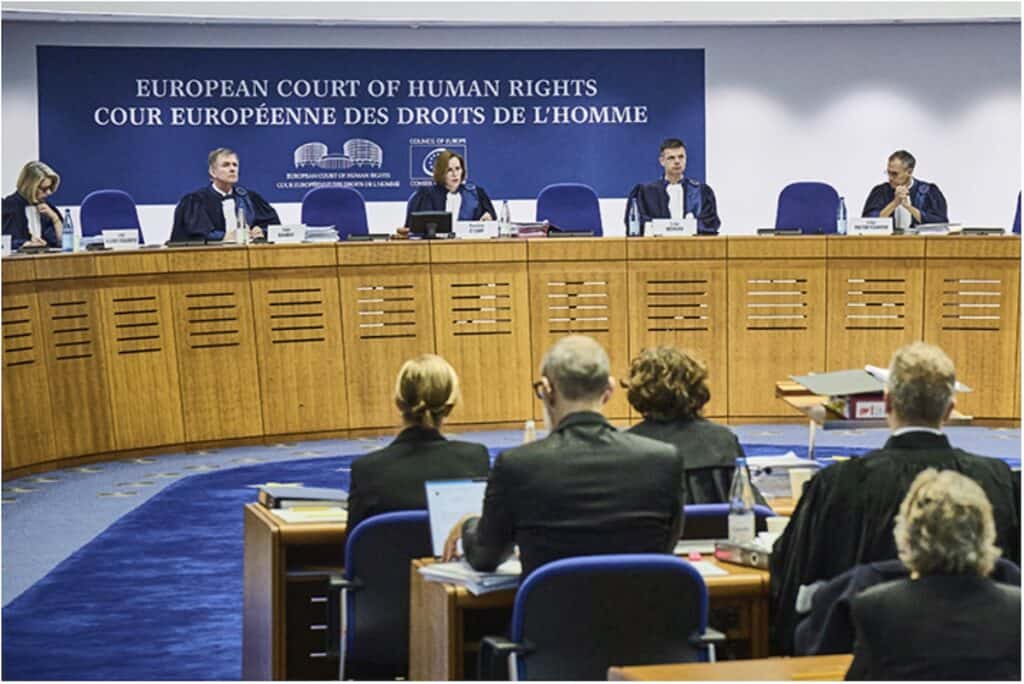
In debates about freedom of religion, people often assume that these protections only apply to religious believers. But they don’t. They also apply to those of us who have nonreligious philosophical beliefs such as atheism, secularism, and humanism.
The Council of Europe, based in Strasbourg, oversees the European Convention on Human Rights. The Council has published a guide on Article 9 of the Convention, which covers freedom of thought, conscience, and religion. This guide says:
“Freedom of thought, conscience and religion as enshrined in Article 9 of the Convention represents one of the foundations of a “democratic society” within the meaning of the Convention.
It is, in its religious dimension, one of the most vital elements that go to make up the identity of believers and their conception of life, but it is also a precious asset for atheists, agnostics, sceptics, and the unconcerned.
The pluralism indissociable from a democratic society, which has been dearly won over the centuries, depends on it. That freedom entails, inter alia, freedom to hold or not to hold religious beliefs and to practise or not to practise a religion (Kokkinakis v. Greece, § 31; Buscarini and Others v. San Marino [GC], § 34).”
What other beliefs are protected?
Article 9 protects the “major” or “ancient” world religions which have existed for millennia or for several centuries, as well as new or relatively new religions or spiritual practices, and various coherent and sincerely-held philosophical convictions.
The test of whether a belief is protected is that it must attain a certain level of cogency, seriousness, cohesion and importance, and be worthy of respect in a democratic society.
As well as atheism, agnosticism, and scepticism, protected beliefs include:
- attachment to secularism (Lautsi v Italy)
- veganism and opposition to the manipulation of animal products (W v United Kingdom)
- pacifism (Arrowsmith v United Kingdom)
- principled opposition to military service (Bayatyan v Armenia)
- opposition to abortion (Knudsen v Norway)
- a doctor’s opinions on alternative medicine (Nyyssonen v Finland)
- the conviction that marriage is a lifelong union between a man and a woman (Eweida v United Kingdom)
However, Article 9 does not protect all nonreligious beliefs. For example, it does not protect:
- demanding that the state uses your language
- refusing to vote where voting is compulsory
- wanting to be recognised as a political prisoner
- wanting to impose corporal punishment on a child
Holding beliefs and taking action
You have an absolute right to hold your beliefs, and a qualified right to take action on them.
- The right to hold or change your belief (whether religious or not) is absolute and unconditional.
- The right to manifest and practice your beliefs is not absolute. Any limitations must be prescribed by law and necessary in a democratic society in pursuit of a legitimate aim. These legitimate aims are public safety, the protection of public order, health and morals, or the protection of the rights and freedoms of others.
The state has both a negative obligation to refrain from interfering in your rights, and a positive obligation to secure your rights.
- Under the state’s negative obligations, you have the right not to practice a religion or to reveal one’s beliefs, and the right not to act contrary to one’s conscience and convictions.
- Under the state’s positive obligations, you have the right to act in a way which is inspired, motivated or influenced by, and also intimately linked to, a religion or set of beliefs.
- You have the right to freedom from interference with the rights guaranteed by Article 9. But you do not have the right to prevent other people from offending your religious sensibilities.
The rights protected by Article 9
Article 9 of the European Convention states that:
“Everyone has the right to freedom of thought, conscience and religion; this right includes freedom to change his religion or belief and freedom, either alone or in community with others and in public or private, to manifest his religion or belief, in worship, teaching, practice and observance.
Freedom to manifest one’s religion or beliefs shall be subject only to such limitations as are prescribed by law and are necessary in a democratic society in the interests of public safety, for the protection of public order, health or morals, or for the protection of the rights and freedoms of others.”
One aspect of this right, regarding the education of children, is also protected by Article 2 of Protocol 1 to the Convention. This states that:
“No person shall be denied the right to education. In the exercise of any functions which it assumes in relation to education and to teaching, the State shall respect the right of parents to ensure such education and teaching for their children in conformity with their own religious and philosophical convictions.”
Another aspect of this right, regarding freedom from discrimination, is protected by Article 14 of the European Convention. This states that:
“The enjoyment of the rights and freedoms set forth in [the] Convention shall be secured without discrimination on any ground such as sex, race, colour, language, religion, political or other opinion, national or social origin, association with a national minority, property, birth or other status.”
The right to freedom of thought, conscience and religion in Article 9 often overlaps with other European Convention rights, including the right to a fair trial under Article 6, the right to respect for private and/or family life under Article 8, the right to freedom of expression under Article 10, and the right to freedom of assembly and association under Article 11.
Conclusion
The right to freedom of belief isn’t just for religions. It’s for everyone. That includes atheists, secularists, humanists, and anyone whose convictions don’t involve a god.
Human rights law doesn’t take sides in the content of beliefs. It protects your right to have one, change one, or reject one, whether the belief is religious or nonreligious.